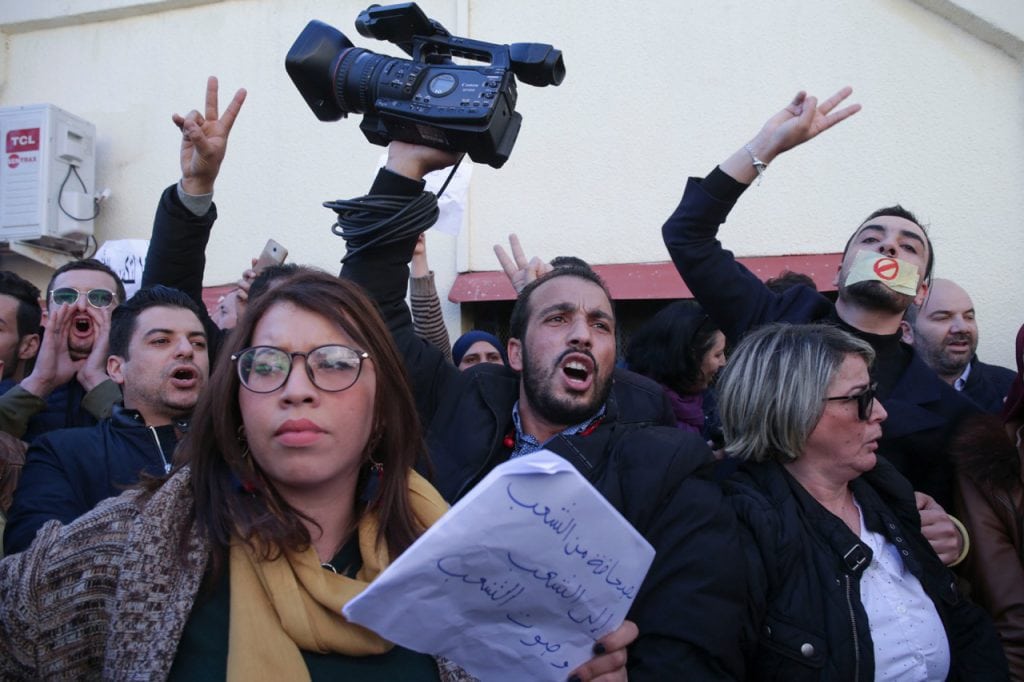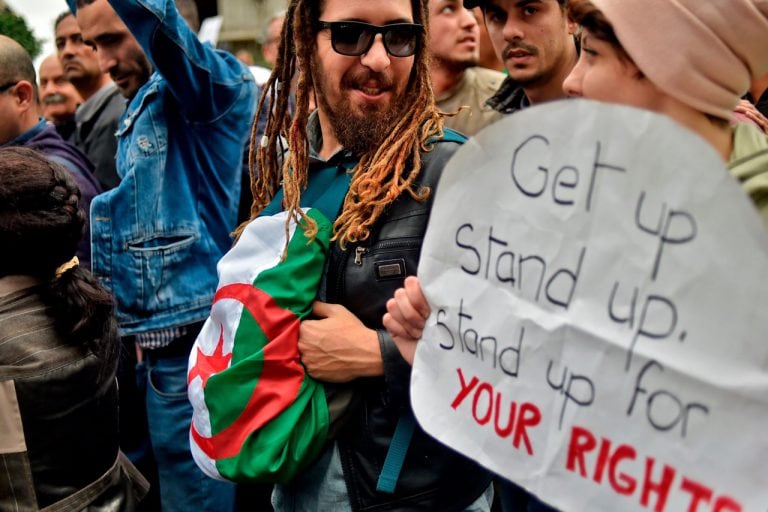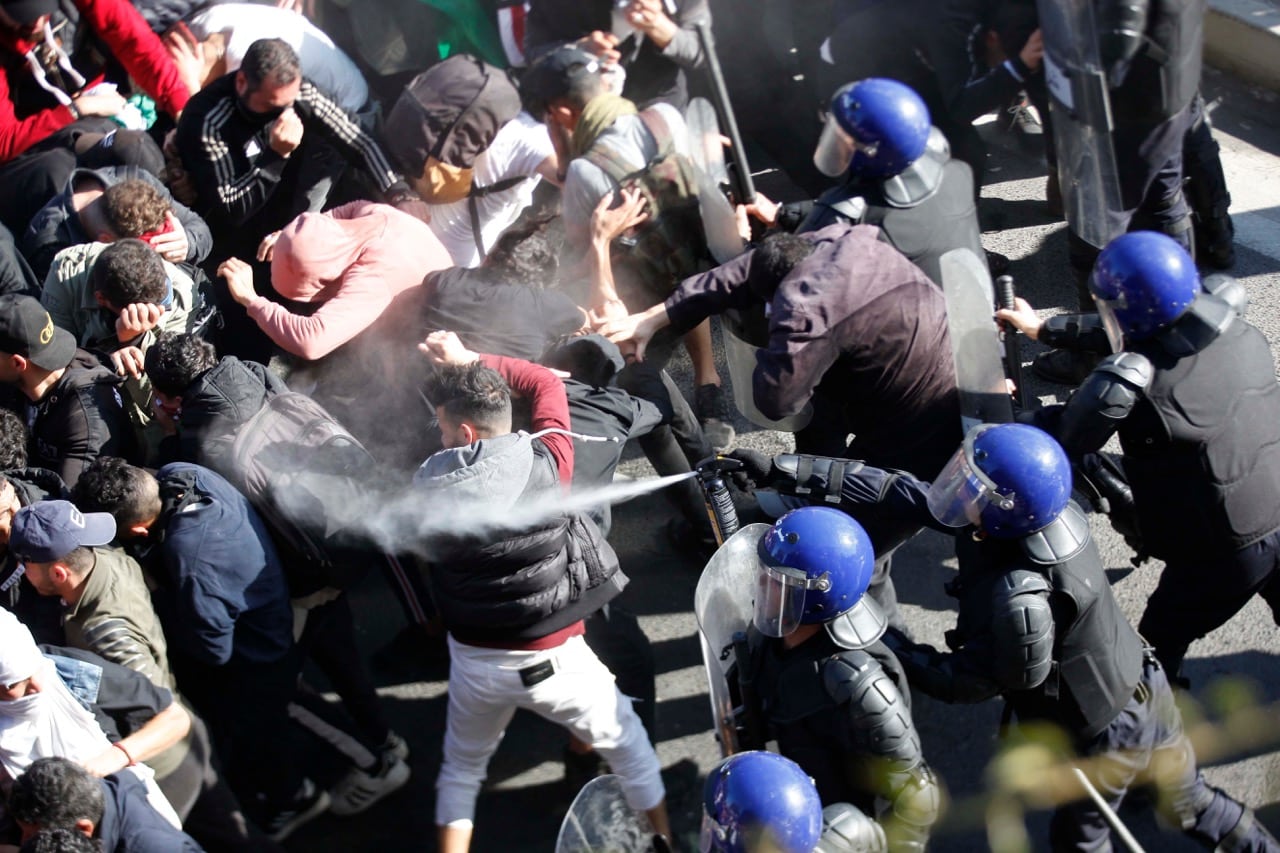Algerian journalist Lynda Abbou explains why protests that have swept the country in recent weeks were a pivotal moment for journalists frustrated at censorship.
The following is an excerpt of a 29 March 2019 CPJ blog post by Danya Hajjaji/Patti Birch Fellow for Middle East Research.
In a Q&A with CPJ, Algerian journalist Lynda Abbou explains why protests that have swept the country in recent weeks were a pivotal moment for journalists frustrated at censorship.
When protests swept Algeria last month over President Abdelaziz Bouteflika’s now-abandoned plans to seek a fifth term in office, many of the country’s mainstream television and radio stations were silent. Frustrated by censorship and confronted by protesters demanding to know why the press appeared to be ignoring them, Algerian journalists began staging their own demonstrations.
In a letter to the director of public radio, a group of journalists wrote, “The decision of the hierarchy to ignore the big national protests of [February] is merely the notable hell of the daily exercise of our profession.” Separately, Radio Chaîne 3 editor-in-chief Meriem Abdou resigned, saying in a Facebook post that she “refus[ed] to condone behavior that tramples on the most basic rules of our noble profession.”
Journalists in Algeria already work under restrictive conditions, with authorities issuing directives to news outlets, preventing critical articles from being published, and withholding state advertising, according to Freedom House. The digital rights group NetBlocks has reported evidence of internet blockages amid the recent unrest.


